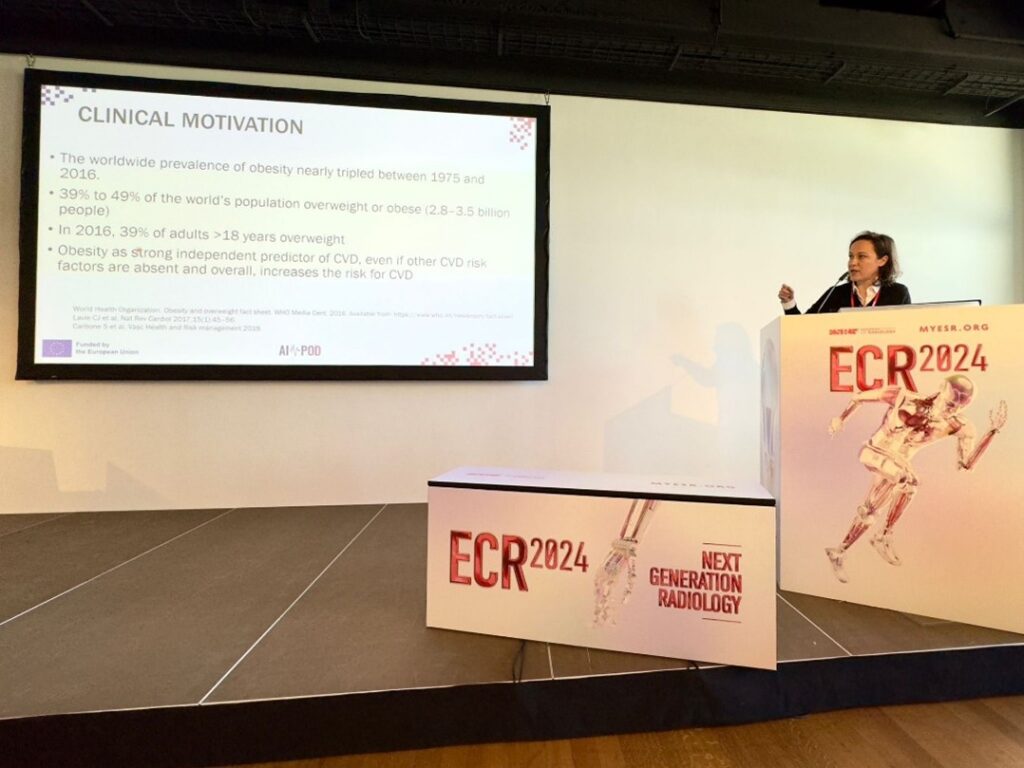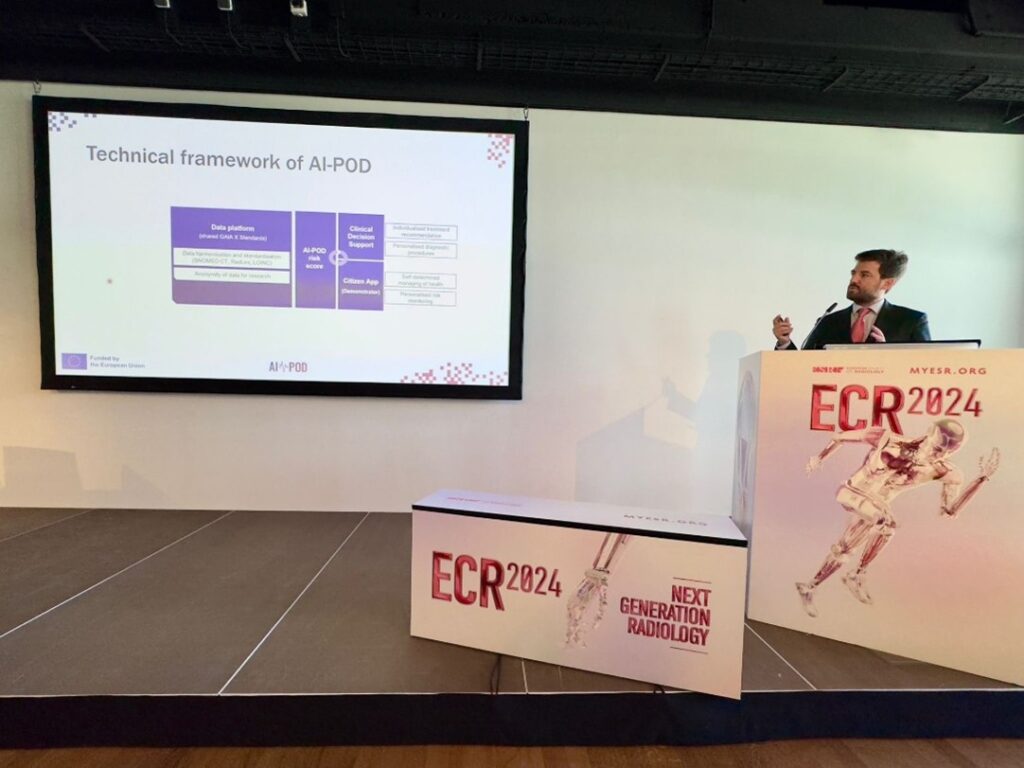AI-POD was featured at the European Congress of Radiology 2024 (28 February – 3 March 2024, Vienna). The open-access EIBIR session on Trustworthy AI tools for the prediction of obesity-related diseases on March 3, 11:30-12:30 CET, was a joint session with other projects working on the use of AI tools for clinical decision making.
The session, presented by Prof. Dr. Ulrike Attenberger, AI-POD coordinator, and Prof. Dr. Georg Langs, WP3 lead, looked at the use of artificial intelligence (AI) in tackling cardiovascular disease (CVD) and highlighted the profound health challenge that obesity represents.
This initiative involves two different data input streams: one focusing on imaging data, laboratory results and clinical profiles, while the other includes lifestyle factors such as physical activity, heart rate, and eating habits. By combining these data sets, a comprehensive database is to be created that will enable the creation of differentiated risk models. Ultimately, obese people will be empowered to take control of their health by receiving accurate predictions and personalised health management strategies.
According to the World Health Organization’s 2016 findings, nearly 40% of adults struggle with obesity, which has been shown to be an independent predictor of cardiovascular disease. However, prevailing methods of cardiovascular disease risk assessment do not adequately address the complexity of obesity, particularly in obese individuals. To address this gap, a novel AI-driven risk scoring system is currently being developed to improve diagnostic accuracy in this population. The main goal is to equip healthcare professionals with AI tools tailored to assess and predict CVD risk in obese populations.
The session highlighted the central role of AI in cardiovascular disease assessment and risk modelling, with a focus on improving healthcare for obese people. Utilising inputs from various sources ranging from clinical records to lifestyle metrics collected via fitness trackers, the project strives to develop robust predictive algorithms. In addition, the collaboration with Collective Mind Radiology promises to enrich the data platform by utilising data from multiple sources to refine and validate the predictive capabilities of the AI models. While the speakers acknowledged that refining AI-based risk assessment models is a long-term endeavour, they articulated a vision in which obese people are empowered to navigate their health journeys with confidence, underpinned by precise risk assessments and personalised interventions.
To watch the session online, follow these instructions:
-
- Visit the session page on ESR Connect and select the session you would like to attend.
-
- Click on ‘Login’ in the upper right corner and enter your ESR MyUserArea credentials or create a new ESR account for free (after you have created your account, please visit the session page once again).
-
- The session is now saved in your user menu under ‘My Courses’ which can be accessed via your user icon in the upper right corner.
-
- When the session starts, log-into your account and visit the session page, where the livestream will start automatically.

